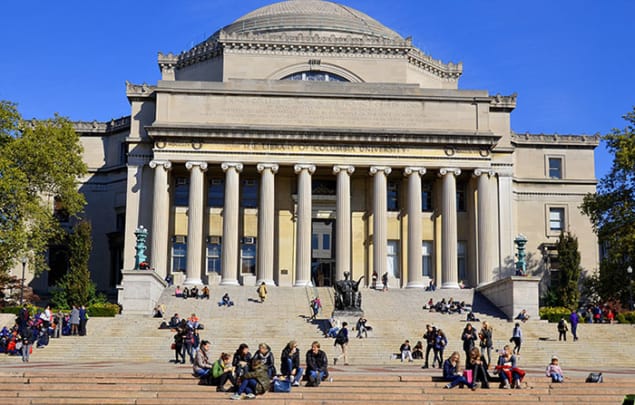
The United States National Labor Relations Board (NLRB) ruled last week that graduate students in private universities and colleges, who work as teaching or research assistants, are statutory employees of their institutions who have the right to join unions. The decision, made in response to a plea by graduate students at Columbia University, overturns a 2004 decision that denied the students union rights. Groups of student assistants have already reacted to the decision by filing for certification of local unions to represent them.
Tremendous victory
“Graduate employees deserve a seat at the table and a voice in higher education. Collective bargaining can provide that,” says Howard Bunsis, who chairs the American Association of University Professors’ Collective Bargaining Congress. “This is a tremendous victory for student workers.” Not surprisingly, representatives of private universities disagree. “We are disappointed that [the decision] has overruled years of precedent finding that graduate students are not employees for unionization purposes,” says Stanford University spokesman Brad Hayward.
The issue before the board focused on the relevance of the work that student teaching assistants carry out to their overall education. Students argued that their teaching duties are independent of, and can actually detract from, their research. “I took a lot of my time preparing lectures,” Mickey McDonald, a Columbia physicist who has just defended his doctoral research on ultracold molecules, told physicsworld.com. “And grading undergraduates’ lab reports can take up to 15 hours per week.” The ability to join unions, students added, will allow them to negotiate liveable stipends and working hours. They also pointed out that teaching assistants at state universities can already unionize, because they are protected by local state laws, and that the private New York University voluntarily unionized in 2013.
Influencing issues
Columbia University authorities countered that teaching assistantships give graduate students the skills and expertise they will need in future careers as researchers and teachers. Participation in collective bargaining, they added, could destroy the traditional mentor–student relationship. Indeed, they raised the possibility that student-assistants’ unions could influence issues beyond students’ economic situations – by trying to negotiate class sizes taught by teaching assistants, for example, or the details of examinations they mark. Prominent research universities such as Harvard, MIT and Princeton supported the Columbia arguments in “friends-of-the-court” briefs.
Graduate employees deserve a seat at the table and a voice in higher education. Collective bargaining can provide that
Howard Bunsis, chair, American Association of University Professors' Collective Bargaining Congress
In its 2004 decision on a case brought by Brown University student assistants, the NLRB largely agreed with those arguments. The board rejected the idea that student assistants could be considered employees of their universities because they “are primarily students and have a primarily educational, not economic, relationship with their university”. Last week’s decision rejected that thinking by a three-to-one majority. The 2004 decision, the board commented, had “deprived an entire category of workers of the protections of the National Labor Relations Act without a convincing justification”.
Pros and cons
Krista Freeman, a graduate student in physics at Carnegie Mellon University, who chairs the American Physical Society’s Forum on Graduate Student Affairs, welcomes the decision. “Many aspects of graduate student life are unsavoury and uncertain, and collective bargaining power could go a long way to correcting these issues,” she says. “This can only lead to healthier, happier and more financially stable students.”
Universities remain unconvinced. In a letter to the Columbia University community following last week’s decision, provost John Coatsworth speaks of the potential benefits and drawbacks of having student assistants’ interests represented by the United Auto Workers (which now focuses on employees beyond the car industry). “I am concerned about the impact of having a non-academic third party involved in the highly individualized and varied contexts in which faculty teach and train students in their departments, classrooms and laboratories,” he writes. Harvard University agrees. “We continue to believe that the relationship between students and the university is primarily about education, and that unionization will disrupt academic programmes and freedoms, mentoring and research at Harvard,” an official statement notes.
Nevertheless, the move to unionize has already started. On Monday, graduate students in 10 Yale University departments, including physics, geology and geophysics, and mathematics, filed a petition to the NLRB requesting certification of a local union to represent them.



